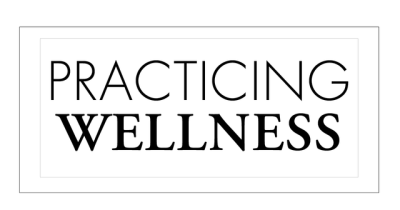
As we pass from one decade to the next, many of us can look back and see significant variations in the messages we’ve been given regarding health and safety. During my mother’s pregnancies, she was told that nursing wouldn’t provide her infants with enough nutrition. This message changed during my own pregnancies when science demonstrated the significant health benefits of breast milk for babies. The same occurred with infant sleep safety, with recommendations switching from a stomach to back position, which dramatically reduced the number of sudden infant deaths. As Maya Angelou once said, “Do the best you can until you know better. Then when you know better, do better.”1 With this in mind, it comes as no surprise that the same holds true as it relates to alcohol consumption. For years, many of us were led to believe that a drink per day was harmless, and some even thought that a glass of red wine a day could be good for your health. With recent research revealing that attorneys experience problematic drinking that is hazardous, harmful, and generally consistent with alcohol use disorders at a rate much higher than other populations,2 it’s time to do better when it comes to alcohol.
It turns out we know a lot more than we used to, and a hot-off-the-press advisory from the U.S. Surgeon General should certainly not be ignored. When a Surgeon General Advisory is issued, it serves as a public statement that calls the American people’s attention to an urgent public health issue. Advisories are reserved for significant public health challenges that require the nation’s immediate awareness and action and have included issues such as the opioid crisis, the nicotine epidemic, and the dire need for suicide prevention.3 And as of 2025, the U.S. Surgeon General names alcohol as the third leading cause of preventable cancer, falling just below tobacco and obesity.4 With one-quarter of legal professionals being at risk for alcoholism,5 (compared to just about 6% of the general population), this article provides vital information that may cause one to reassess the cost-benefit analysis of regular alcohol use and provide those looking to reduce or eliminate their use with a strong motivational fulcrum to do so.
The advisory report, which can be found on the U.S. Department of Health and Human services website (www.hhs.gov), notes that in 2019 alone, there were 96,730 cases of alcohol-related cancers.6 The advisory details the scientific evidence for the causal link between alcohol consumption and cancer, naming at least seven different types — breast (in women), colorectum, esophagus, voice box, liver, mouth and throat.7 It explains how alcohol damages our DNA, proteins and cells and increases inflammation. It alters multiple levels of hormones and leads to greater absorption of carcinogens.8 And though it certainly holds true that the more you drink, the greater your risk, shockingly, just one drink per day increases cancer risk by 19% for women and by 11.4% for men.9
You don’t have to have a problematic use of alcohol to stop drinking or to even cut back. For those concerned about having to defend their abstinence, this advisory certainly gives reason for doing so. And for those looking to do just that, check out the following tips:
- Examine your relationship with alcohol and set clear goals for making change. Begin by reducing the frequency with which you drink or the amount you drink per occasion. Having a difficult time sticking with the goals set? That may be an indication of a greater problem.
- Give yourself grace! Like anything, it’s about progress, not perfection. There may be ups and downs! Stay focused on your goals and don’t lose sight of your accomplishments. Beating yourself up or falling into a shame spiral, which begins with feelings of guilt or embarrassment and escalates into feelings of inadequacy and self-blame, is unhelpful. Be sure to cultivate self-compassion and take pride in your efforts.
- Alter your patterns and change your environment. Don’t put yourself in situations where it will be difficult to just say no. Spending time in social situations where the main focus is alcohol (wineries, breweries, or bars) may be setting yourself up for failure. Try engaging in alternate activities and spending time with friends who don’t view downing drinks as the main event. Avoid keeping alcohol in excess in the home.
- Lastly, it cannot be overstated that ceasing use of alcohol cold turkey can be extremely dangerous. For heavy drinkers, stopping use of alcohol without detoxification and the assistance of medical professionals can be life threatening.10 Alcohol withdrawal can include sweating, rapid heart rate, high blood pressure, headache, insomnia, nausea and vomiting, anxiety, agitation, tremors or shakes, seizures, delirium tremors and even death.
As an anonymous alcoholic in recovery once said to me, “I’ve never woken the morning after not drinking and wished that I had, but I’ve sure woken the morning after drinking and wished that I hadn’t.” The Lawyers and Judges Assistance Program is a comprehensive, confidential, professional program that is here to help those who are concerned about their alcohol use as well as to assist ordinary drinkers who simply want to drink less. And as I always like to mention, we certainly help those with no concerns about substance use as well. We offer a supportive and non-judgmental space to seek a listening ear, obtain resources or referrals, and attain assistance to thrive both personally and professionally. Call our toll-free helpline today at 800.996.5522 or email us at contactljap@michbar.org.